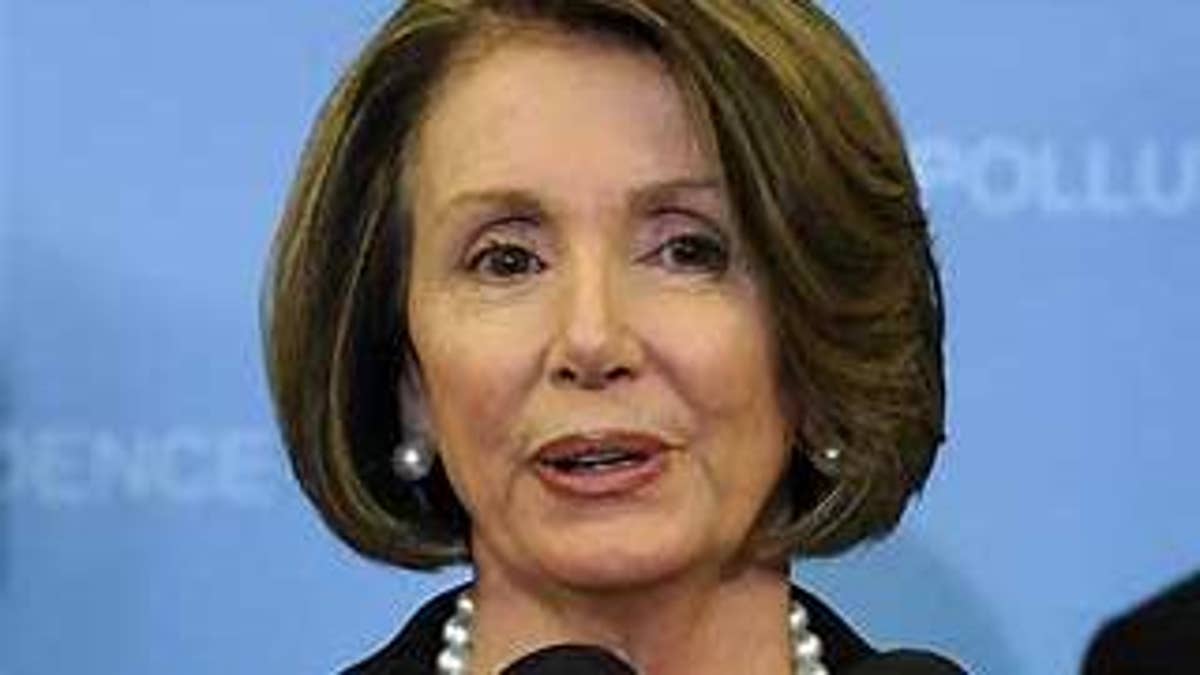
House Speaker Nancy Pelosi reportedly was told in February 2003 by her intelligence aide, Michael Sheehy, that waterboarding was used on CIA terror detainee Abu Zubaydah, directly contradicting Pelosi's account that she had never been informed of the technique's use.
According to a report, Sheehy attended a briefing with Rep. Jane Harman, D-Calif., in February 2003 and discussed the CIA's use of waterboarding.
When the aide told Pelosi waterboarding had actually been used on the Al Qaeda terrorist, she didn't object because she was not personally briefed on the matter, an unnamed source confirmed to CNN.
Pelosi then supported a letter drafted by Harman, the ranking Democrat on the House Intelligence Committee, and sent to the Bush administration, raising concerns over the technique, the network reported.
A CIA document made public last week shows that Pelosi received a briefing in September 2002 on the tactics used on Zubaydah, an Al Qaeda leader and one of three prisoners subjected to waterboarding. Pelosi said she was told the agency was discussing its legal right to use the tactic in the future.
"We were not -- I repeat -- were not told that waterboarding or any of these other enhanced interrogation methods were used," said Pelosi, D-Calif.
The House majority leader reluctantly agreed Tuesday that congressional hearings should investigate Pelosi's assertion that she wasn't informed, more than six years ago, that harsh interrogation methods were used on the Al Qaeda leader.
Rep. Steny Hoyer, D-Md., called Republican challenges to Pelosi's assertion a diversion from the real question of whether the Bush administration tortured terrorist suspects. Nonetheless, he acknowledged the controversy should be resolved.
Democrats will hold a series of hearings on Justice Department memos released last month that justified rough tactics against detainees, including waterboarding -- simulated drowning -- and sleep deprivation.
While Democrats want the hearings to focus on what they call torture, Republicans have tried to turn the issue to their advantage by complaining that Pelosi and other Democrats knew of the tactics but didn't protest. Pelosi was briefed in 2002 while on the House Intelligence Committee.
However, the CIA has blocked Republican efforts to stir the controversy. Late Tuesday, the spy agency turned down the request of Rep. Pete Hoekstra, ranking Republican on the House Intelligence Committee, for the CIA to declassify the "notes to file" from the CIA officers who briefed members of Congress on the enhanced interrogation program.
The agency told the House Intelligence Committee that the documents "remain highly compartmented and classified."
"This decision is unbelievable -- that, even with all the exposure this program has gotten, these documents would not be released," Hoekstra, R-Mich., said.
Hoekstra said he believes the documents would provide far more detail and make clear what kind of techniques were described in the briefings, shedding more light on what Pelosi and others were told, according to contemporaneous notes from those who briefed them.
Asked at a news conference whether Democrats were inviting political problems for themselves by holding hearings, Hoyer said, "I think the facts need to get out.
"I think the Republicans are simply trying to distract the American public with who knew what when. My response to that is, look, the issue is not what was said or what was known; the question and focus ought to be on what was done."
But he added that the controversy over "what was said and when it was said, who said it ... is probably what ought to be on the record as well."
Hoyer also was asked whether he believes Pelosi's support has been undermined among Democrats.
"No, I don't," he said.
A Senate Judiciary subcommittee holds the first hearing on the interrogation policy on Wednesday, but has scheduled testimony unrelated to the Pelosi matter.
FOX News' Jim Angle contributed to this report.
























